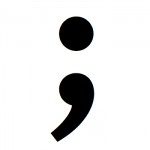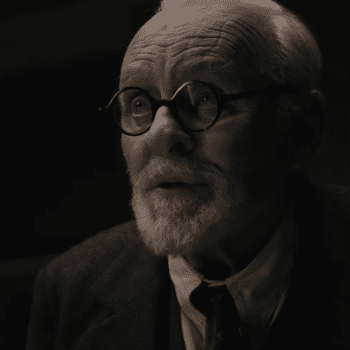 I’ve learned a lot from Bill Cosby. I learned how to deal with everything from stage fright to drug abuse from Fat Albert and the Cosby Kids. I learned that dads can be wise, silly and obstetricians from The Cosby Show. I learned that that Jell-O is awesome and that kids say the darndest things. I listened to his comedy routines constantly, where he taught me that it’s possible to be (mostly) clean and insanely funny.
I’ve learned a lot from Bill Cosby. I learned how to deal with everything from stage fright to drug abuse from Fat Albert and the Cosby Kids. I learned that dads can be wise, silly and obstetricians from The Cosby Show. I learned that that Jell-O is awesome and that kids say the darndest things. I listened to his comedy routines constantly, where he taught me that it’s possible to be (mostly) clean and insanely funny.
Cosby taught me—taught many of us—a great many lessons. It was a role he embraced as both a teacher (he earned a Doctor of Education degree from the University of Massachusetts-Amherst) and, for a time, as America’s favorite father.
Now, he’s teaching how important it is to be the person you present yourself to be.
We all know the allegations leveled against Cosby—the dozens of women who accuse the comic of drugging and assaulting them. We’ve learned, from a recently unsealed deposition, that Cosby admitted to obtaining Quaaludes, intending to give them to women with whom he wanted to have sex.
The deposition doesn’t directly say that Cosby drugged women without their knowledge, as many of his accusers allege: Cosby’s attorneys said that two women allegedly took them “knowingly.” But it’s hard to dismiss Cosby’s accusers these days. And even if the deposition was taken on its own, offering drugs for sex doesn’t fit my picture of a loving family man.
We might never have known about the deposition if Cosby hadn’t worked so hard at embodying that very familial, upstanding image. In recent years, Cosby was increasingly outspoken about what the black community could do to fix itself. When Judge Eduardo C. Robreno decided to release the deposition to the Associated Press, he said that Cosby’s public image was a big reason why.
“The stark contrast between Bill Cosby, the public moralist and Bill Cosby, the subject of serious allegations concerning improper (and perhaps criminal) conduct, is a matter as to which the AP—and by extension the public—has a significant interest,” Robreno wrote in a memorandum.
Now to my knowledge, Cosby was not pounding on a Christian pulpit or waving a Bible when he was moralizing. But let’s face it: Those of us in the Christian community are fond of telling people what’s right and wrong, too. In 2007, The Barna Group found that 76 percent of Americans believed that Christianity fostered good values and principles—and more negatively, 87 percent believed the religion was judgmental.
But the truth is that maybe we Christians should be a little moralizing. That involves more grace and tact than we often show, of course. But if we believe we have found a better way to live and operate, we have an obligation to share that way with others.
But do we believe it? Do we say one thing and do another? And if so, what sort of impression would that leave on folks if our deeds were exposed?
Seems that Bill Cosby’s still teaching me a few lessons. Here are a few of them.
Be righteous. It’s so cliché but so true: I need to walk the walk—to make sure that I’m the same sort of person when no one’s looking as I am when everyone is.
Be humble. As righteous as we may try to be, let’s acknowledge that we’re sometimes really bad at it. We all mess up sometimes. We all fall short of who we want to be and who we should be—sometimes woefully, shamefully short.
And as such, it’s good to remember that our faith, and our salvation, is not ultimately dependent on what we do, but on God’s ability to forgive us. And that ability is beyond measure.
We should always try to keep our own frailty in mind when we talk with other people, too, lest we come across as holier-than-thou moralizers.
Be contrite. When we fail—and we all fail—we need to own it. We need to apologize to those we’ve hurt. We need to hold ourselves accountable. Apologies don’t necessarily make everything better, but it’s where every journey toward redemption must start.
It’s a lesson that feels like Cosby himself might’ve taught somewhere along the line—telling Rudy why she should always tell the truth, or impressing on Theo the importance of accepting the consequences of your actions. That’s good advice for all of us, I think. And frankly, if he’s guilty, it’s good advice for Cosby, too.
It might not save his career. It might not heal his legacy. Maybe from this time on, he’ll be either a pariah or a punchline. But the Cosby I grew up with—the Cosby I thought I knew—would likely say that we don’t apologize to save face or salvage dignity. We own up to our mistakes because it’s the right thing to do.
Cosby has tried to teach us a great many lessons for decades now. And I don’t think it’s too late for him to learn a few of them, as well.













